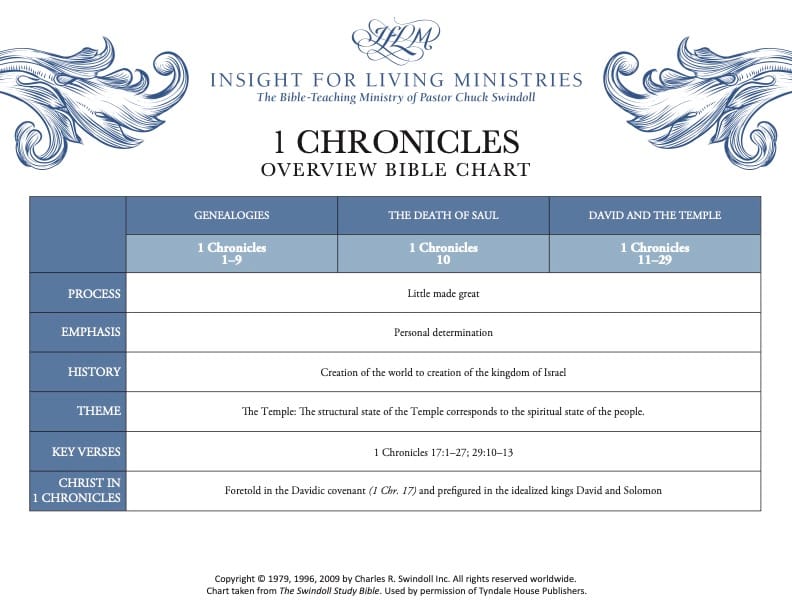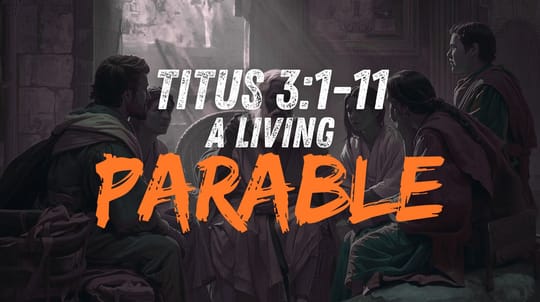
Like a good detective, let's examine this book.
🔥 Overview
The book of 1 Chronicles was written at the end of the Babylonian captivity. The nation is slowly returning to its homeland. The overall message of 1 Chronicles is positive. It was likely written by Ezra. He was a priest and scribe so the focus is from a priestly perspective that also focuses on the worship of God. While Samuel and Kings focus more on the nation of Israel, Chronicles focuses on the nation of Judah. Originally, 1 and 2 Chronicles were written as one book. Therefore, you will see the end of one and the beginning of the other flow together well. 1 Chronicles is notoriously difficult to read because of all the genealogies. It is important to remember that these names helped establish their connection to the land, their connection to God, their connection to His promise, and their connection to one another. Ezra is firmly establishing them in God's hand and in God's land.
🔍 Things to Notice
- A lot of names.
- David gives Solomon the pattern of the Temple and most of the money needed to build it.
🙏 Jesus in this Book
(Every book reveals the glory of God, displayed in Christ Jesus)
- Jesus is the Eternal King of kings.
👀 Themes
- Genealogy.
- Family.
- The Temple.
😀 Who?
Who wrote it? Likely Ezra.
Who is the original audience? The nation of Israel and Judah.
🪧 Where?
Where are we? All events in Israel.
⏳ When?
When was it written: Written: 538-333 BC. Time frame talked about: 970-586 BC.
🤔 What?
What is the big idea? The book of 1 Chronicles establishes the Israelite community to each other, to the land, and to God. They are reminded that God has been with their nation throughout its history.
🧐 Why?
Why is this book important?
From Chuck Swindoll, "Readers will note the extensive space devoted to genealogies. Why are these family lists so common in Chronicles? Scholars say that genealogies serve many purposes, among them
To demonstrate the legitimacy of a person or family’s claim to a particular role or rank . . . to preserve the purity of the chosen people and /or its priesthood . . . to affirm the continuity of the people of God despite expulsion from the Promised Land.3
In addition to family history, 1 Chronicles lists priests, Levites, armies, temple officials, and other leaders of various ministries.
In Chronicles, the history of Israel is told through a priestly perspective. The chronicler devoted significant attention to the proper worship of Yahweh and adherence to the regulations of His Law. The author included David’s decisions on how to move the ark of the covenant (1 Chronicles 13, 15–16) and detailed descriptions of its return to Jerusalem. The chronicler even highlighted one of David’s psalms (16:8–36). We read the story of how David purchased the threshing floor of Ornan, the Jebusite, which he then designated as the future site of the temple (21:15–30). Though David desired to build the temple, God revealed to him that David’s son Solomon would have that honor (17:1–14)."
📝 How?
How can I apply it?: Throughout 1 Chronicles, you will see many names and places. It is important to realize how important these were to the people of Israel. Their family history went all the way back to Abraham. As Christ followers, we sometimes feel like our Christian heritage is only within our local church. However, our Christian heritage goes all the way back to Christ. We have a much bigger spiritual family than we realize. We are all connected by the Lord.
Resources











